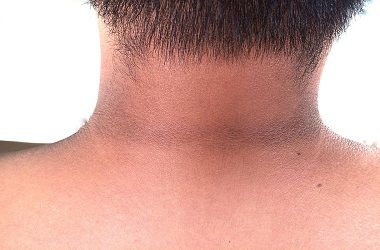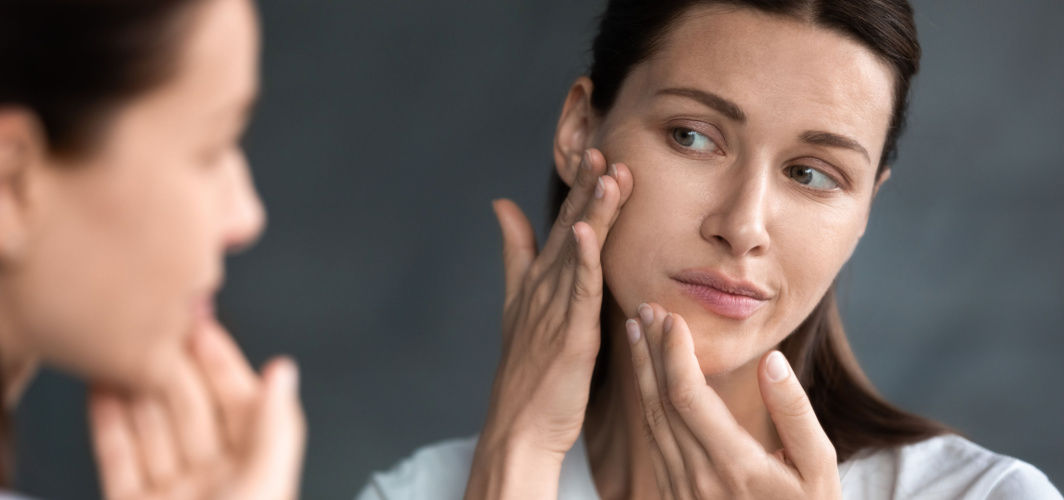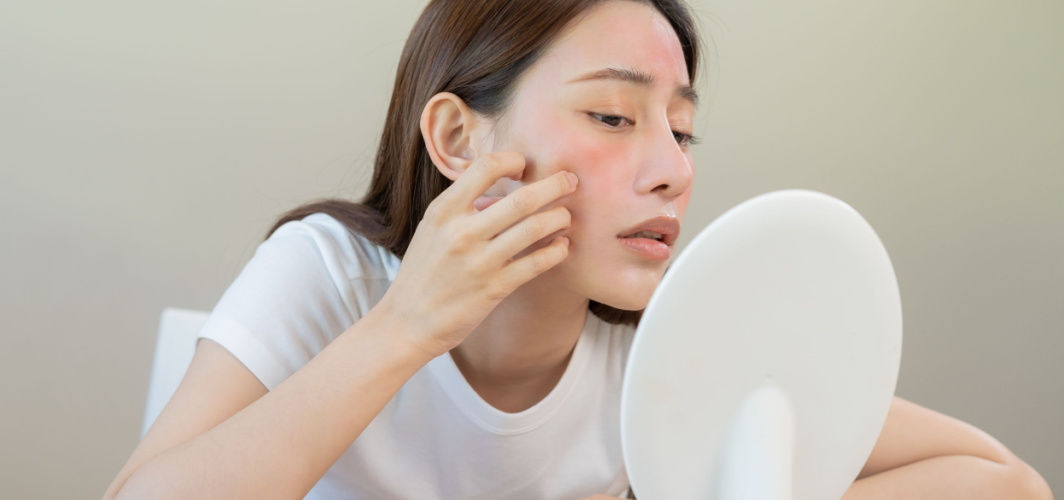Skin Care
Why Is My Neck Turning Black?
5 min read
By Apollo 24|7, Published on - 28 December 2022, Updated on - 07 August 2024
Share this article
0
0 like

Our necks are often the most exposed yet ignored area in body care. That is, while we wash, moisturise, and sunblock our faces a dozen times a day, our necks typically remain unattended. This is primarily why they may appear comparatively darker, tanned, dry or black. In such a case, exfoliation with salicylic acid, a good CTM routine, and regular sunblock can prove to be highly effective.
However, the problem begins when the darkness isn’t gradual but sudden. The sudden pigmentation highlights a problem bigger than basic hygiene, i.e, hormonal or dermal disorder. Read along to find out the top 5 causes of neck darkening and when you must consult a doctor.

Top 5 Causes of Dark Skin on Neck
Dark skin on the neck is usually not a disease, but a few of the very first symptoms of various hormonal disorders. Some of the top 5 include.
1. Acanthosis Nigricans (AN)
This is a common skin condition known to make your neck thick, dark, and velvety. The patches typically appear in lines, mark a foul odour, and cause an itch from time to time. If so, you'll also find the condition slowly progress to all skin foldings, including - the armpits, groin, knees, knuckles, and underneath of female breasts.
Typically, this is a sign of insulin resistance, i.e. prediabetes or Type II diabetes. However, at times, it could also be a marker of obesity, low levels of thyroid hormones, PCOS, adrenal gland disorders, disorders of the pituitary gland, or rarely, a sign of cancer in the stomach or liver.
Symptoms: Skin thickening, skin darkening (back and front), velvety texture, and skin tags.
Surrounding Symptoms: Unstable blood glucose levels, increased hunger or thirst, fatigue, and more.
💡 Did You Know?
Acanthosis nigricans neck affects those with darker skin pigmentation far more frequently.
2. Tinea Versicolor
This is a fungal infection particularly common in teens and young adults. While the fungus that causes it is always present on the skin, the condition is triggered when it overgrows because of heat, humidity, hormonal changes, or after an episode of weakened immunity.
The condition particularly marks small discoloured patches around the neck and shoulders which become more apparent post-sun exposure. If left untreated, it may also slowly progress to the chest, back, and upper arms along with scaling and incessant itching.
Symptoms: Itching at or around affected areas and excessive sweating
Surrounding Symptoms: Oily skin and hormonal imbalance
3. Lichen Planus Pigmentosus (LPP)
Lichen planus pigmentosus (LPP) is a rare skin disease characterized by oval or irregularly shaped hyper pigmented patches on the skin. These patches are typically brown to grey-brown in colour which first emerge on the sun-exposed areas such as the forehead, temple, or neck. With time, they may also progress to different parts of the chest, shoulder, or any area where the skin touches or rubs together (for example- armpit, groin, joints, etc.)
While the exact cause still remains unknown, reports suggest this condition is largely triggered by UV light, viral infections, or specific oils such as amla or mustard. Statistically, it is more prevalent in individuals over the age of 30, and in especially those with a darker complexion.
Symptoms: Small black or brown skin discolouration on the neck
Surrounding Symptoms: Hair loss, nail damage or loss, itching, change in scalp colour, high blood pressure, diabetes, heart disease, and malaria
4. Melasma
Melasma is a common skin condition characterized by dark, patchy marks on the skin. These patches are typically black, brown, or bluish-grey in colour which mostly appear on the nose, chin, cheeks, or above the upper lips, or forehead. In a few advanced cases, the condition may also progress to the back, neck, arm, or other body parts that are frequently exposed to sunlight.
Digging into its causative factor, melasma is simply a result of one’s own skin pigment ‘melanin’. While this pigment is always present in the skin (to protect us from sunlight and UV), it can be over-triggered at times due to sudden hormonal changes such as pregnancy (most common reason).
In rarer cases, it may also be triggered by anti-seizure medications, oral contraceptive pills, hypothyroidism, LED screens, certain cosmetics, skin care products, and scented soaps or such.
Fortunately, though, melasma is mostly mild and temporary. While the condition can be troublesome in appearance, it neither marks pain, nor any itch or discomfort typically associated with other skin conditions.
Nevertheless, you must consult a doctor at the earliest to rule out thyroid, and multiple different kinds of skin cancer that are known to mimic symptoms of melasma.
Symptoms: Dark and patchy marks on the neck
Surrounding Symptoms: Mild burning sensation
5. Addison's Disease
Addison's disease results from a rare autoimmune disorder of the adrenal glands. Here, the body stands unable to make certain hormones such as cortisol or aldosterone. With the absence of such, you may experience sudden or gradually darkened skin, weight loss, extreme fatigue, low BP, low sugar, loss of appetite, nausea, abdominal pain, depression, loss of body hair, or sexual issues at times.
This is a medical emergency and must be treated as such. In case of delay, the condition may prove to be life-threatening.
Symptoms: Skin darkening around the neck
Surrounding Symptoms: Fatigue, weight loss and low blood pressure
Final Note
From tanning and bad hygiene to serious hormonal and dermal issues- a dark neck may root from multiple factors. What stands important then is to carefully observe the surrounding symptoms. In case you feel the neck darkening is sudden, or that it is accompanied by alarming symptoms such as incessant itch, fatigue, loss of appetite, unstable glucose, or more, consult a doctor at the earliest. You may need immediate medical intervention.
However, if the concern is aesthetic, consider consulting our dermatologists. They can help you device effective skin care routines with medical-grade products and channel relevant therapies if and when needed.
Medically Reviewed by Dr. Dhanunjay Reddy B
Skin Care
Consult Top Dermatologists
View AllLeave Comment
Recommended for you

Skin Care
How To Take Care Of Your Skin Before And After Holi?
Holi is a vibrant festival of colours, however, some of the toxic Holi colours can result in skin irritation and infections. Therefore, it is necessary to take care of your skin before and after the festival to avoid any skin issues.

Skin Care
Your Skin Can Indicate Rise In Cholesterol! Know How
Your dermatologist can recognise signs of high cholesterol in your body by looking at your skin and nails. Read on to know the different signs of high cholesterol on the skin.

Skin Care
Rosacea Acne: Definition, Causes, Triggers, Symptoms, Treatments & Prevention
Discover rosacea acne, a chronic skin condition, along with its causes, triggers, symptoms, treatments, and prevention strategies.
Subscribe
Sign up for our free Health Library Daily Newsletter
Get doctor-approved health tips, news, and more.
Recommended for you

Skin Care
How To Take Care Of Your Skin Before And After Holi?
Holi is a vibrant festival of colours, however, some of the toxic Holi colours can result in skin irritation and infections. Therefore, it is necessary to take care of your skin before and after the festival to avoid any skin issues.

Skin Care
Your Skin Can Indicate Rise In Cholesterol! Know How
Your dermatologist can recognise signs of high cholesterol in your body by looking at your skin and nails. Read on to know the different signs of high cholesterol on the skin.

Skin Care
Rosacea Acne: Definition, Causes, Triggers, Symptoms, Treatments & Prevention
Discover rosacea acne, a chronic skin condition, along with its causes, triggers, symptoms, treatments, and prevention strategies.
